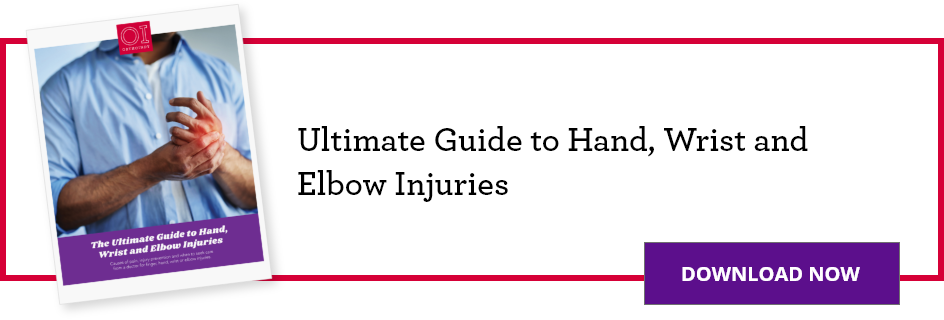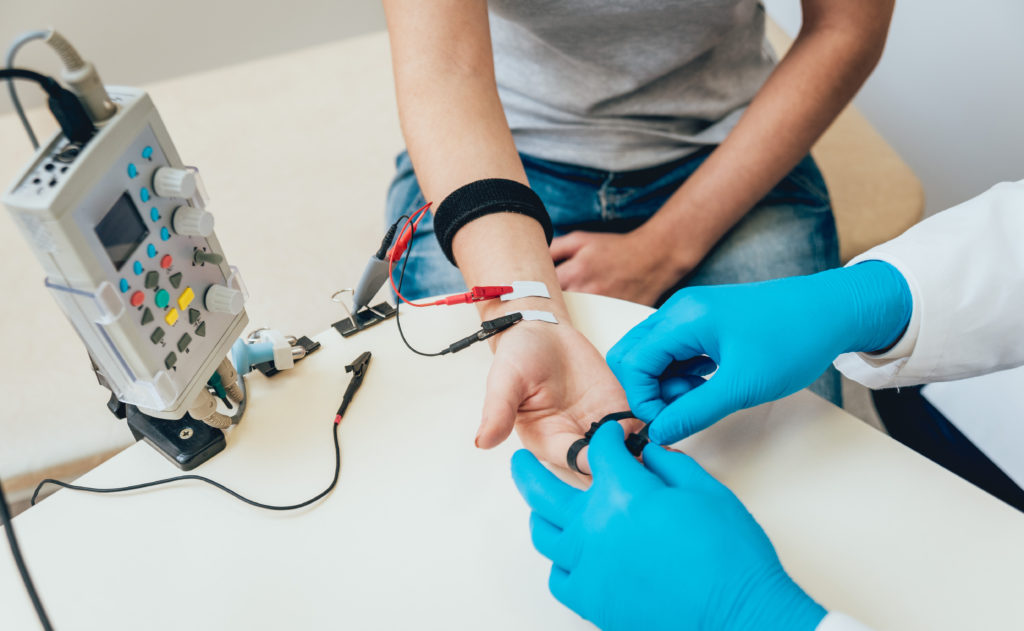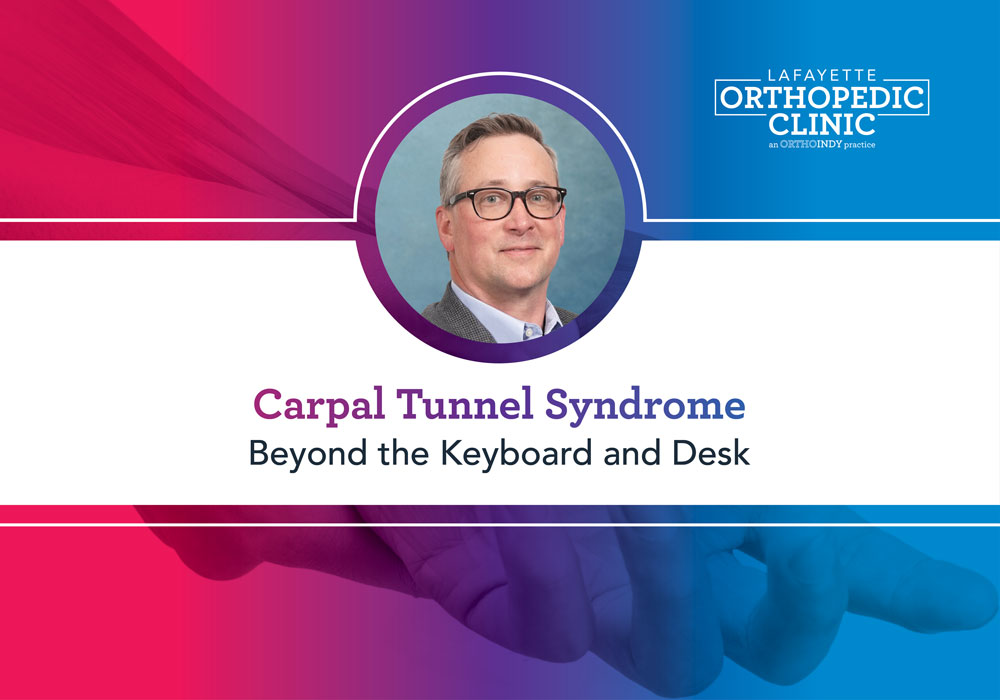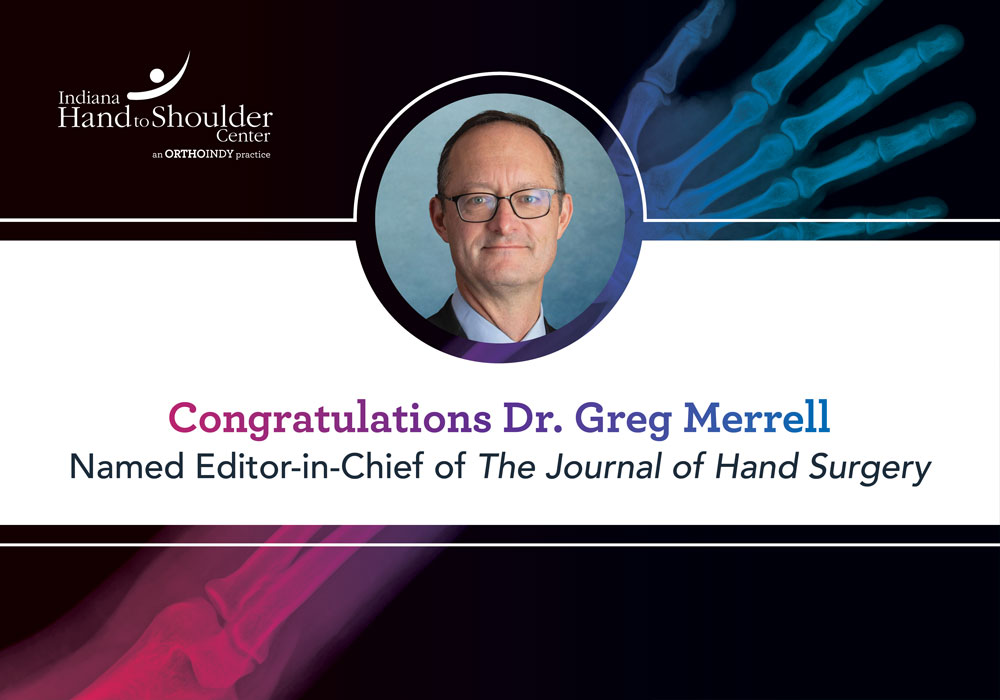An electromyography (EMG) evaluates the condition of muscles and their motor neurons. EMG test results can indicate neuromuscular abnormalities, including issues with nerve-to-muscle signals and muscle and nerve dysfunction.
What is an EMG test used to diagnose?
An electromyography is used when there are symptoms of a muscle or nerve disorder, including:
- Numbness or tingling
- Muscle weakness, cramping, pain or twitching
EMG test results are used to test for several different conditions, including:
- Muscular dystrophy or other muscle disorders.
- Carpal tunnel syndrome or other disorders of the peripheral nerves in the wrist.
- Myasthenia gravis or other issues with the nerve and muscle connection.
- Amyotrophic lateral sclerosis (ALS), polio or other nerve disorders that impact motor neurons.
- Herniated disk within the spine or other disorders involving nerve root.

Electromyography procedure
Our muscles are able to contract thanks to the signals that motor neurons transmit from the spinal cord. An EMG uses electrodes to turn the motor neuron’s signals into data to be analyzed.
There are different ways of conducting an EMG, including:
- A needle EMG: This procedure involves putting a needle electrode into the muscle in order to collect its electrical activity. There shouldn’t be electrical activity in a relaxed muscle.
- A nerve conduction study: This procedure involves putting electrode stickers on the skin to evaluate a signal’s speed and strength.
Hand surgeons often order nerve tests called nerve conduction velocity/EMG studies to evaluate for carpal tunnel, pinched ulnar nerves at the elbow and other conditions affecting the nerves in the upper extremity.
Is an EMG test painful?
You may feel a spasm from the electrodes during an EMG test. Any pain experienced by the needle will resolve quickly after it is taken out. You may also have slight bruising at the site of the needle that will go away in days. An EMG is considered a low-risk procedure.
EMG test results
EMG test results are examined by either a neurologist or physiatrist. Your doctor will get a report and will consult it with you.
Learn more about the services offered at OrthoIndy.
Schedule an appointment
Your well-being is important to us. Click the button below or call us to schedule an appointment with one of our orthopedic specialists. If your injury or condition is recent, you can walk right into one of our OrthoIndy Urgent Care locations for immediate care. For rehabilitation and physical therapy, no referral is needed to see one of our physical therapists.





